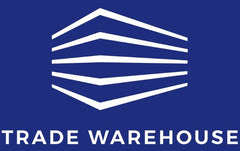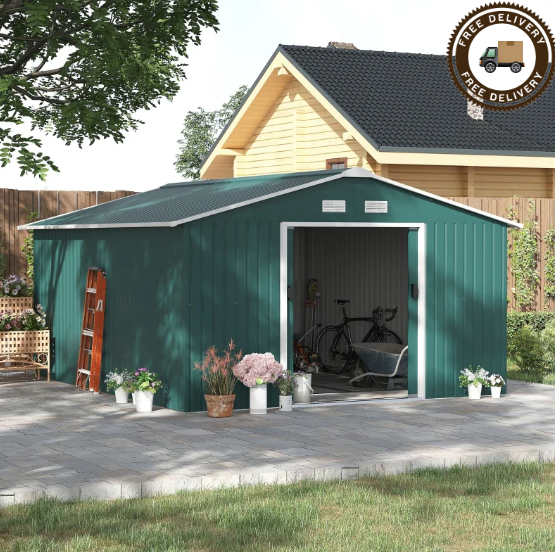Insulating a metal shed is crucial for maintaining comfortable temperatures throughout the year.
Effective insulation ensures that the shed stays warm during the winter months and keeps the heat out during the summer. This blog will explore various insulation options available for metal sheds, detailing how they work, their installation methods, and their pros and cons, helping you decide which is best for your needs.
What Are My Choices for Shed Insulation?
Various types of insulation can be used for metal sheds, each offering unique benefits and installation methods.
Types of Shed Insulation:
- Spray Foam Insulation
- Rigid Board Insulation
- Loose-Fill Insulation
- Batt Insulation
- Vapour Barrier
Let's break it down.
Spray Foam Insulation
Spray foam insulation is a popular choice due to its excellent thermal performance and ability to create an airtight seal.
This section will delve into how spray foam insulation works, its installation process, and its pros and cons.
How it Works
Spray foam insulation consists of two liquid components that mix and expand upon application. This expansion creates a foam that adheres to surfaces, filling gaps and providing an airtight seal that effectively blocks heat transfer.
Installation
- Professional Installation: Spray foam insulation is typically installed by professionals using specialized equipment.
- Application Process: The foam is sprayed onto the surfaces, where it expands and adheres to create a seamless layer.
Pros
- Thermal Performance: Offers excellent insulation and air-sealing capabilities.
- Full Coverage: Fills gaps and cavities, providing complete coverage.
- Vapour Barrier: Acts as a barrier to prevent moisture intrusion.
Cons
- Cost: Professional installation can be costly.
- Expertise Required: Requires professional installation for optimal performance.
- Improper Fitting: Incorrect installation can lead to poor performance.
Key Takeaway: Spray foam insulation provides superior thermal performance and moisture resistance, but it requires professional installation and can be expensive.
Rigid Board Insulation
Rigid board insulation is another effective option known for its durability and high insulating value.
How it Works
Rigid board insulation is made of foam panels that offer high thermal resistance by reducing heat conduction through the thermal envelope.
Installation
- Cut to Size: Rigid boards are cut to fit between framing members or applied directly to walls and roofs.
- Sealing: Joints and edges need to be sealed to maintain effectiveness.
Pros
- High Insulation Value: Provides excellent thermal resistance.
- Durability: Offers long-lasting insulation.
- Moisture Resistance: Resistant to moisture and suitable for areas requiring load-bearing support.
- Sound Insulation: Provides good sound insulation properties.
Cons
- Cost: More expensive than other insulation types.
- Installation Complexity: Requires extra steps for effective installation.
- Rigidity: Difficult to install on irregular or curved surfaces.
Key Takeaway: Rigid board insulation offers high durability and insulation value, but its cost and installation complexity may be drawbacks.
Loose-Fill Insulation
Loose-fill insulation is known for its ability to fill irregular spaces effectively.
How it Works
Loose-fill insulation consists of small particles, such as cellulose or mineral wool, which are blown or poured into cavities to create a thermal barrier.
Installation
- Blowing Machine: Typically installed using a blowing machine to ensure even distribution and effective filling of gaps and cavities.
Pros
- Effective Filling: Ideal for filling irregular spaces, gaps, and hard-to-reach areas.
- Thermal Resistance: Provides excellent thermal resistance.
- Moisture Resistance: Resistant to moisture and settling.
- Add-On Capability: Can be added to existing insulation.
Cons
- Specialized Equipment: Installation requires specialized equipment and expertise.
- Settling: May settle over time, reducing effectiveness.
- Cost: Can be more expensive than other insulation types.
Key Takeaway: Loose-fill insulation is highly effective for filling irregular spaces, but it requires specialized installation and may settle over time.
Batt Insulation
Batt insulation is a widely available and cost-effective option for insulating metal sheds. This section explores how batt insulation works, its installation process, and its pros and cons.
How it Works
Batt insulation comes in pre-cut panels or rolls made of materials such as fiberglass. These panels are fitted between framing members to provide a thermal barrier.
Installation
- DIY-Friendly: The pre-cut panels or rolls can be easily placed between framing members, making it a suitable DIY project.
- Snug Fit: Ensures a snug fit to avoid gaps.
Pros
- Availability: Widely available and easy to find.
- Cost-Effective: Generally more affordable compared to other insulation types.
- Thermal Performance: Offers good thermal performance.
- Sound Absorption: Provides sound absorption properties.
- DIY Installation: Homeowners can install it themselves without professional help.
Cons
- Installation Precision: Improper installation can reduce effectiveness.
- Fit Issues: May require extra trimming or adjustments for irregular spaces.
Key Takeaway: Batt insulation is a cost-effective and DIY-friendly option, but it requires precise installation to ensure optimal performance.
Vapour Barrier
A vapour barrier, like Alutrix 600, is crucial for controlling moisture and preventing condensation within a metal shed.
How These Barriers Work
A vapour barrier is a material that blocks the movement of water vapour, helping to control moisture and prevent condensation.
Installation
- Placement: Vapour barriers are installed on the interior side of the insulation, facing the conditioned space.
- Sealing: Proper sealing of joints and overlaps is essential to maintain effectiveness.
Pros
- Moisture Control: Prevents moisture intrusion, reducing the risk of condensation, mould, and rot.
- Healthy Environment: Helps maintain a healthy environment within the metal shed.
Cons
- Installation Precision: Requires proper installation to avoid compromising effectiveness.
- Moisture Trapping: Excessive use can trap moisture, leading to potential issues.
Key Takeaway: Vapour barriers are essential for controlling moisture and preventing condensation, but they require precise installation to be effective.
How Do I Know if I Actually Need to Insulate My Metal Shed?
Deciding whether to insulate your metal shed depends on various factors, including climate, location, and the shed's purpose.
Climate Considerations
- Humidity and Temperature Fluctuations: In regions with high humidity and significant temperature changes, insulation helps prevent condensation, rust, and mould.
- Stable Temperatures: Insulation helps stabilize interior temperatures, reducing the impact of external weather conditions.
Purpose of the Shed
- Workshop or Storage: If the shed is used as a workshop or for temperature-sensitive storage, insulation is crucial for maintaining stable conditions.
- General Use: For general storage or infrequent use, insulation might be less critical but can still provide benefits.
Professional Consultation
- Assessment: Consulting professionals can help assess your specific situation and recommend the best insulation solution.
- Tailored Solutions: Professional advice ensures that the chosen insulation material and installation method meet your needs.
Conclusion
Insulating a metal shed is a crucial step in maintaining comfortable temperatures and preventing issues like condensation and mould.
By exploring various insulation options, understanding their working mechanisms, installation processes, and pros and cons, you can make an informed decision. Whether you choose spray foam, rigid board, loose-fill, batt insulation, or a vapour barrier, selecting the right material based on your specific needs will ensure optimal performance and longevity.
Consult professionals if needed, and enjoy a well-insulated shed that meets your requirements.
Remember, we are a leading UK supplier of garden sheds.

